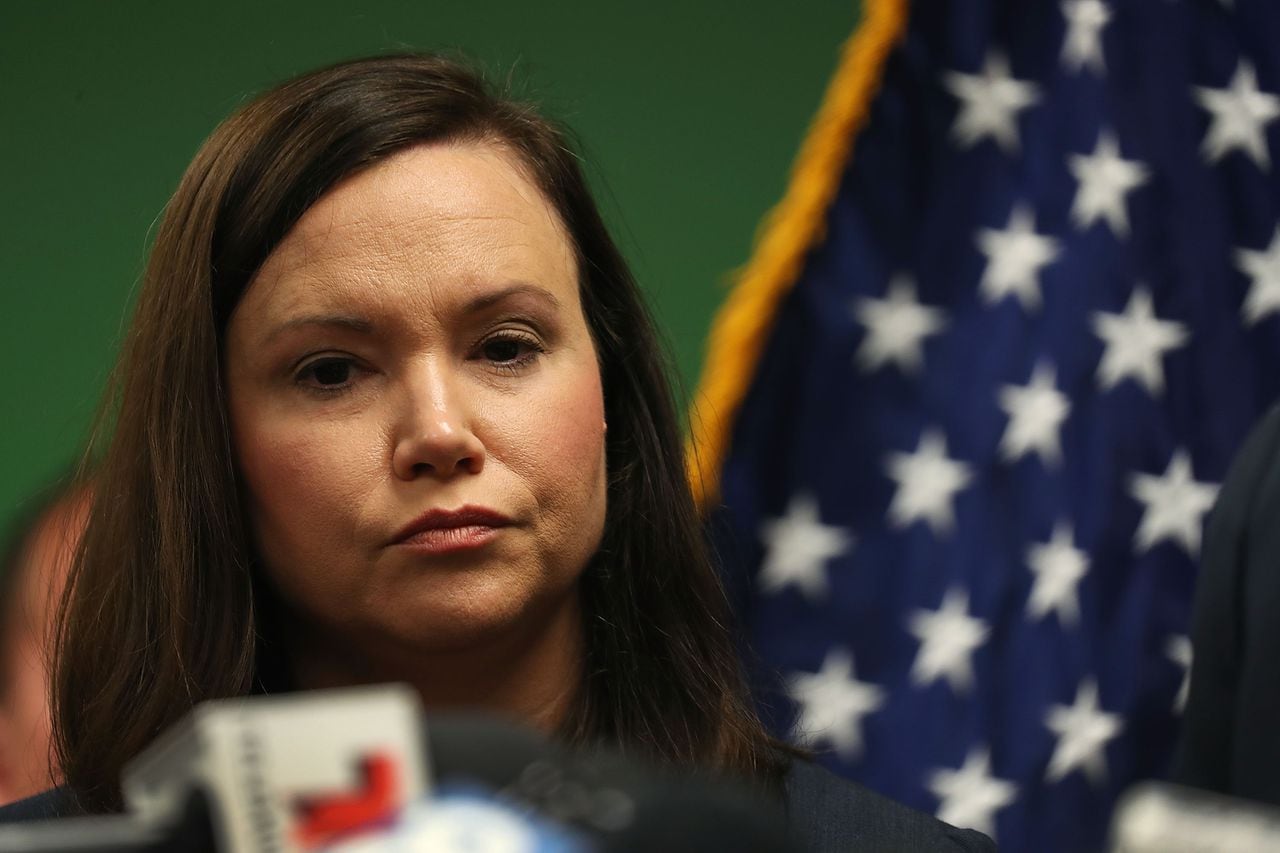Florida starts FSU playoff snub antitrust investigation: What does it mean? What is ESPNâs role?
The fallout from Florida State’s exclusion from the College Football Playoff ramped up this week when Attorney General Ashley Moody made the first step in an antitrust investigation into the playoff.
It’s a complicated case, even by the standards of the handful of antitrust experts we consulted. Attorney Hal K. Litchford called it a “fairly advanced antitrust issue.”
See also:
Here are some questions and answers on why the state is looking into a 13-member committee picking 12-1 Alabama over undefeated FSU.
What happened this week?
Moody issued an antitrust civil investigative demand, or CID. It acts like a civil subpoena. In this case, the Attorney General’s Office asked the playoff for a broad range of information and documents about its decision-making process. The topics include: protocols, votes, revenue figures and communications with ESPN, the SEC and ACC.
What is antitrust law?
The core idea is that healthy competition powers our economy, helping the individuals in each marketplace and society as a whole. Activities that stifle that healthy competition — like collusion between competitors or price-fixing — could violate those laws.
What does that have to do with college football?
“That’s the $64,000 question,” said Litchford, senior counsel with Orlando’s Baker Donelson law firm.
Think of the playoff as a marketplace. In this case, some competitors (selection committee members who are employees of other schools) picked one competitor (Alabama) over another (FSU). There’s nothing inherently wrong with that. Trade groups, for example, have some leeway to make their own rules. Some can be subjective.
“What this civil investigative demand is trying to do is to see whether there were forces at play beyond what’s sort of been the stated rationale for selecting the four teams,” said Richard Doran, a former Florida Attorney General under Jeb Bush. “… Were there other factors involved that drove decision makers to make the selection they did?”
If so, were those factors designed to restrict competition (like promoting the SEC at the expense of the ACC)? Were they done as part of a conspiracy to limit certain groups’ access to the playoff market? Those factors could cross antitrust lines.
It’s noteworthy, too, that the Attorney General wants information related to the Power Five and Group of Five conferences. Those requests suggest another possible antitrust avenue to explore: Have major conferences tried to monopolize the playoff at the expense of mid-majors (like UCF’s undefeated 2017-18 teams)?
“There’s an undercurrent here about the P5,” said Doran, a shareholder at the Tallahassee law firm Ausley McMullen. “That remains to be seen how that gets explored.”
Could ESPN be at fault?
Not necessarily. Suppose ESPN pushed for Texas to make the playoff instead of FSU.
“ESPN’s not in competition with Florida State or Texas,” Litchford said.
And because they’re not competitors, he said, antitrust laws might not apply.
What are some relevant examples?
In the 1990s, then-Attorney General Bob Butterworth used the same type of demand to see if the National League had conspired to keep the San Francisco Giants from moving to St. Petersburg. It was part of the legal saga that led to the creation of the Tampa Bay Rays.
Two decades ago, FSU’s fledgling medical school was denied accreditation by a national governing body. The university and Butterworth weighed an antitrust suit against that body, thinking the school had done what it was supposed to do but was still denied. The school got its accreditation a few months later.
Does the playoff have to respond?
Yes, or it risks being held in contempt of court. But the playoff might not have to provide everything by the final Jan. 11 deadline. The playoff — officially called CFP Administration, LLC — can ask for more time. It could also ask the Attorney General’s Office to narrow the scope of its requests. Those negotiations could play out behind the scenes or publicly through the courts.
Does this mean the playoff did something wrong?
Not necessarily. The legal bar for issuing a civil subpoena is relatively low, and Doran said the investigation is in the top of the first inning. It’s too early to know what, if anything, the Attorney General’s Office will uncover.
“That’s the whole purpose of the CID,” Litchford said. “They’re trying to see is there, (or) is there not a case here.”
Why is the state of Florida involved?
That’s a key question for two reasons. One is practical: Is this a good use of the state’s time and money? Politicians have argued yes if an unfair process harmed Florida citizens (FSU players and coaches) or hurt a state institution (FSU) financially.
The other is legal: Why should the state of Florida have authority over a group based in Texas? One argument is that the playoff does business in the state through the Orange Bowl and teams like FSU. This jurisdictional issue could come up in court.
What’s the legal threshold for wrongdoing?
It’s murky. There’s not always defined line between lobbying and putting a thumb on the metaphorical scale. One thing to keep in mind: Antitrust laws exist to protect overall competition, not an individual competitor.
What’s the endgame?
It’s not to get the playoff to swap out Alabama for FSU. The deadline is three days after the national championship.
The investigation could end in a lawsuit or report from the Attorney General’s Office. Any documents it obtains and uses in legal filings could fuel a separate FSU suit. Under state law, financial penalties are three times the victim’s damage.
A less contentious scenario leads to more transparency. Perhaps the investigation brings the playoff selection process out from behind the closed doors of a hotel conference room and into the open in a way that satisfies the public.
At least until next season.
• • •
©2023 Tampa Bay Times. Visit tampabay.com. Distributed by Tribune Content Agency, LLC.
